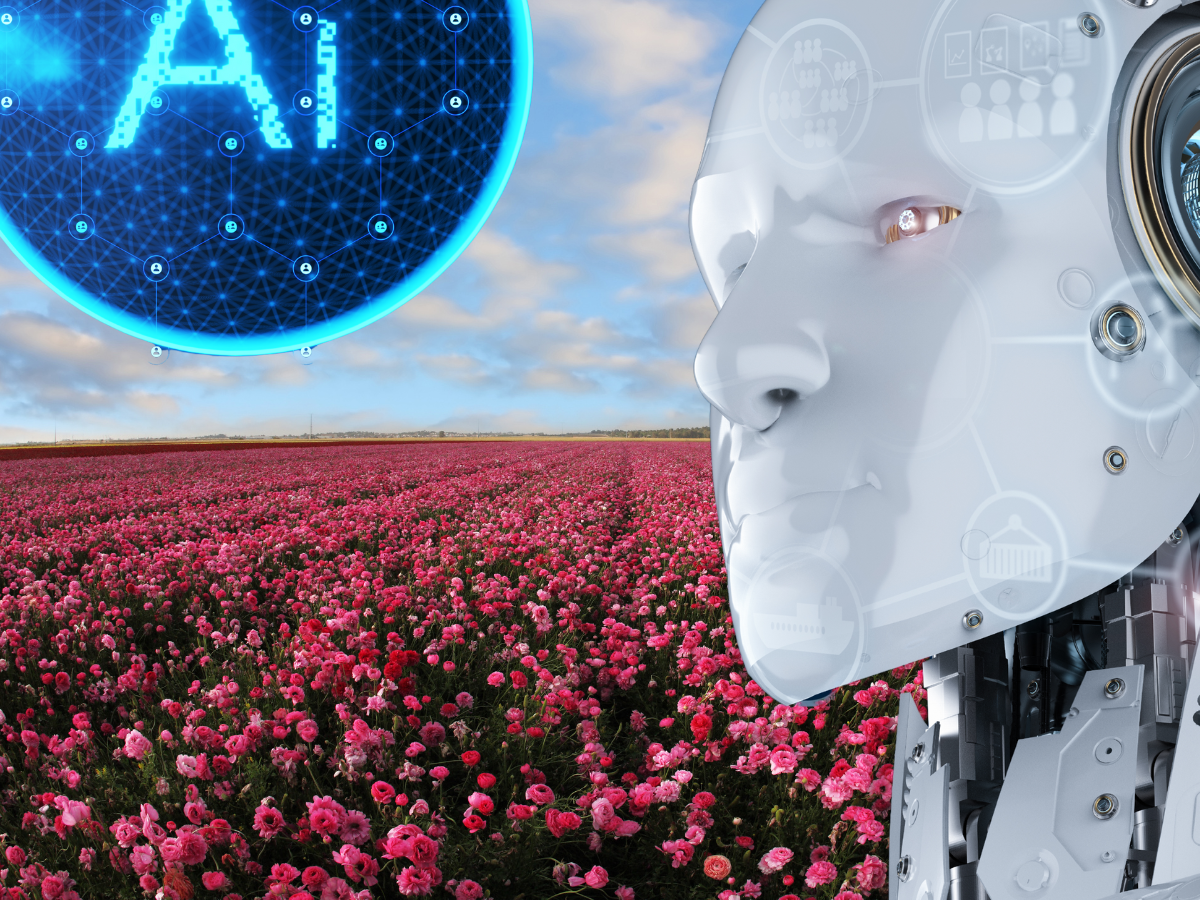The Impact of Artificial Intelligence on Modern Farming

Artificial Intelligence (AI) is transforming various industries, and agriculture is no exception. By leveraging AI technologies, farmers can optimize their operations, increase efficiency, and make data-driven decisions. From precision farming and predictive analytics to autonomous machinery and crop monitoring, AI is revolutionizing modern farming practices. This blog explores the impact of AI on agriculture, its benefits, challenges, and the future of AI-driven farming in the UK.
AI Applications in Agriculture
- Precision Farming
- Precision farming involves using AI and data analytics to manage crops and livestock more precisely. AI algorithms analyze data from sensors, satellites, and drones to provide insights on soil health, crop conditions, and weather patterns. This allows farmers to apply inputs such as water, fertilizers, and pesticides more efficiently, reducing waste and improving yields.
- Predictive Analytics
- AI-powered predictive analytics help farmers anticipate crop performance, pest infestations, and disease outbreaks. By analyzing historical data and current conditions, AI models can forecast future scenarios, enabling farmers to take proactive measures and optimize their strategies.
- Autonomous Machinery
- Autonomous tractors, harvesters, and drones equipped with AI are automating various farming tasks. These machines can perform planting, weeding, harvesting, and spraying with high precision and minimal human intervention. This reduces labor costs and increases operational efficiency.
- Crop Monitoring and Health Assessment
- AI-powered drones and satellites capture high-resolution images of fields, which are then analyzed using machine learning algorithms. This helps in monitoring crop health, detecting stress factors, and identifying areas that need attention. Farmers can use this information to make timely decisions and improve crop management.
- Supply Chain Optimization
- AI optimizes supply chain management by predicting demand, optimizing logistics, and reducing post-harvest losses. Machine learning algorithms analyze market trends, weather forecasts, and inventory levels to ensure that produce reaches the market at the right time, minimizing waste and maximizing profits.
Benefits of AI in Agriculture
- Increased Efficiency and Productivity
- AI automates labor-intensive tasks, allowing farmers to focus on strategic decision-making. This increases operational efficiency and productivity, leading to higher yields and reduced costs.
- Enhanced Resource Management
- By providing precise insights into crop and soil conditions, AI helps farmers use resources more efficiently. This reduces the consumption of water, fertilizers, and pesticides, promoting sustainable farming practices.
- Improved Crop Health and Quality
- AI enables early detection of pests, diseases, and nutrient deficiencies, allowing farmers to take corrective actions promptly. This improves crop health and quality, leading to better produce and higher market value.
- Data-Driven Decision Making
- AI provides actionable insights based on data analysis, enabling farmers to make informed decisions. This data-driven approach enhances farm management and reduces the risks associated with traditional farming practices.
- Climate Resilience
- AI helps farmers adapt to changing climatic conditions by providing real-time weather forecasts and predictive analytics. This allows farmers to plan their activities and mitigate the impact of adverse weather events.
Challenges and Solutions
- High Initial Costs
- Implementing AI technologies can be expensive, particularly for small-scale farmers. However, government subsidies, grants, and partnerships with technology providers can help offset initial costs and make AI more accessible.
- Data Privacy and Security
- The use of AI involves collecting and analyzing vast amounts of data, raising concerns about data privacy and security. Ensuring robust data protection measures and transparent data usage policies is essential to address these concerns.
- Technical Expertise
- Operating and maintaining AI systems require technical skills that many farmers may lack. Providing training and support can help farmers acquire the necessary expertise to use AI effectively.
- Connectivity Issues
- AI applications often rely on internet connectivity, which can be a challenge in rural areas with limited access. Improving rural internet infrastructure and developing offline capabilities can help overcome this barrier.
The future of AI in agriculture is promising, with ongoing advancements in technology and increasing adoption by farmers. Innovations such as AI-powered robots, improved predictive models, and integration with other emerging technologies like IoT and blockchain will further enhance the potential of AI-driven farming. In the UK, continued investment in research, development, and infrastructure, along with supportive policies, will drive the growth of AI in agriculture and promote sustainable farming practices.
Artificial Intelligence is revolutionizing modern farming by providing innovative solutions to enhance efficiency, productivity, and sustainability. From precision farming and predictive analytics to autonomous machinery and crop monitoring, AI is transforming every aspect of agriculture. While challenges such as high initial costs and technical expertise exist, the long-term benefits of AI-driven farming make it a valuable investment for farmers. As technology continues to evolve, AI will play an increasingly vital role in shaping the future of agriculture, ensuring a resilient and sustainable food system in the UK and beyond.






